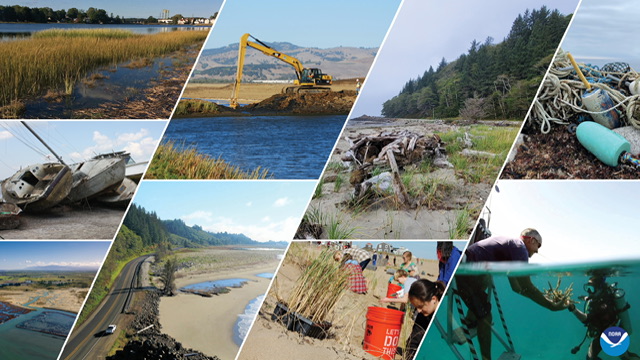

Americans are far apart because some folks only care about themselves but real public servants work harder.
While there is only one planet we call Mother Earth and one global ocean, the vast body of water that covers 71 percent of the Earth is geographically divided into distinct named regions. The boundaries between these regions have evolved over time for a variety of historical, cultural, geographical, and scientific reasons.
Historically, there are four named oceans: the Atlantic, Pacific, Indian, and Arctic. However, most countries - including the United States - now recognize the Southern (Antarctic) as the fifth ocean. The Pacific, Atlantic, and Indian are the most commonly known.
The Southern Ocean is the 'newest' named ocean. It is recognized by the U.S. Board on Geographic Names as a body of water extending from the coast of Antarctica to the line of latitude at 60 degrees South. The boundaries of this ocean were proposed to the International Hydrographic Organization in 2000. However, not all countries agree on the proposed boundaries, so this has yet to be ratified by members of the IHO. The U.S. is a member of the IHO, represented by the NOS Office of Coast Survey.
Five oceans with billions of views on how they want to live their lives, the rule we must follow is to never attack anyone who does not show any aggression towards us.
What’s Happening in the Ocean, and Why it matters
Over the last five decades, we’ve burned enough coal, gas, and oil, cut down enough trees, and produced enough other emissions to trap some six billion Hiroshima bombs’ worth of heat inside the climate system. Shockingly, though, only 1 percent of that heat has ended up in the atmosphere.
Read in Scientific American: https://apple.news/Ac3aTn12-
$562 million for resilient Americans to climate impact. Funding for 149 projects to reach 30 states and territories under NOAA’s Climate-Ready Coasts initiative
Are we boiling our oceans and planet Earth as well as ourselves to death? We must work together to improve our lives and kindly share an inclination towards social interaction, and seek the company of others, deriving comfort, reassurance, and joy from our friends. These connections and ties offer us a sense of belonging, helping us to define who we are within the broader context of society. However, the flip side to this narrative is the importance of solitude, a state often overlooked or misunderstood in our social-centric worldview.
Solitude, the state of being alone without feeling lonely, is essential to personal growth. It provides a break from the constant input of others’ opinions and attitudes, allowing us to look inward, understand our thoughts and emotions, and get in touch with our inner selves. Mastering the art of solitude encourages emotional self-sufficiency, an ability that boosts mental health and overall life satisfaction.
While spending time alone might initially appear challenging, especially to those who thrive in the company of others, embracing solitude can pave the way for self-discovery and personal growth. Here, we explore four healthy ways to approach and enjoy solitude, from being your best friend to dreaming of your ideal future, meditating, and chasing your dreams.
Not 100 years of solitude, but a few can be used to be kind to ourselves and others.